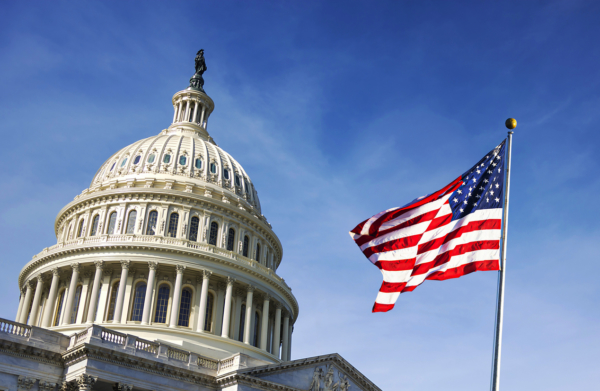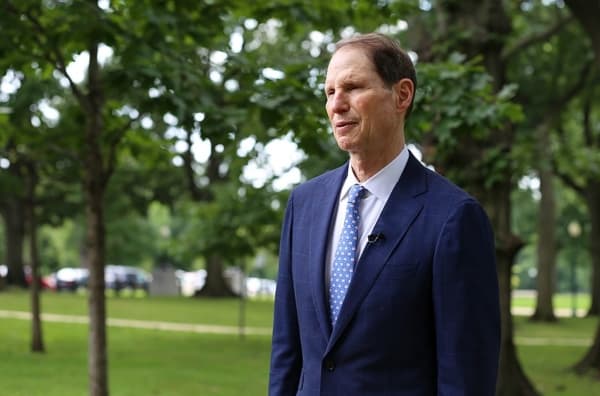
Those who refer to the Inflation Reduction Act passed by the Senate this past weekend as “historic” are not exaggerating. The Act represents the most muscular legislation to date to try to tame rising prescription drug prices, which can be devastating for seniors. The legislation still must be passed by the House and signed into law by President Biden, but it is unlikely to materially change. Among other measures, the Inflation Reduction Act:
*Empowers Medicare to negotiate prices with drug-makers
*Caps Medicare Part D patients’ annual out-of-pocket payments at $2,000
*Caps the cost of insulin for Part D patients at $35/month
*Penalizes drug-makers for raising prices above the rate of inflation
Though the bill does not contain everything that advocates (and many Progressives) had hoped, these provisions represent meaningful reform that can change lives for the better by taming drug prices. Its most historic aspect is the drug price negotiation provision – more modest than originally envisioned, but still extremely significant. At first, only ten drugs will be eligible for negotiations, and new brand-name drugs are excluded. Negotiated prices will not take effect until 2026. But Big Pharma opposed even these modest measures, unleashing its multi-billion dollar campaign contribution and lobbying machine against the Democrats’ plans.
Prescription drug price negotiation by the Medicare program was explicitly forbidden by the Medicare Modernization Act of 2003 – the law that created Part D drug coverage. It took advocates almost two decades to reverse that provision, even though the VA system has been successfully negotiating prices with Big Pharma for years.
“This is like lifting a curse,” Senator Ron Wyden, Democrat of Oregon and the architect of the measure, said of the Medicare negotiation provision. “Big Pharma has been protecting the ban on negotiation like it was the Holy Grail.” – New York Times, 8/05/22
NCPSSM President and CEO Max Richtman (who was Executive Vice President of the organization back in 2003) remembers when the ban against price negotiation was dropped into the Medicare Modernization Act.
“The provision literally was inserted in the middle of the night, after Big Pharma reached a deal with congressional Republicans. The industry essentially said, ‘We can live with the new Part D drug benefit, but not with prescription drug price negotiation.’ We in the advocacy community have been trying to undo that ever since.” – Max Richtman, NCPSSM President and CEO
Richtman says that the chair of the House Energy and Commerce Committee, Rep. Billy Tauzin (R-LA), was the prime mover of the negotiation ban in Congress. “He carried the water for Big Pharma,” Richtman remembers. Tauzin retired from Congress in January, 2005. The day after his term ended, he took over as head of PhRMA, the drug industry’s powerful lobbying group.
Up until now, Big Pharma’s outsize influence on Capitol Hill was able to keep efforts toward prescription drug pricing reform at bay. According to the New York Times, the industry has spent more than $5.2 billion on lobbying since 1998. “The insurance industry, the next biggest spender, spent $3.3 billion,” reports the Times, which says that Big Pharma splits its lavish campaign contributions roughly equally between Republicans and Democrats.
So what changed? How is Congress finally able to move prescription drug pricing reform across the finish line? For one thing, the average price of brand name prescription drugs in Medicare Part D more than doubled between 2009 and 2018, outraging the public and advocates alike. During the subsequent two years, price hikes outstripped inflation for half of all drugs covered by Medicare. Because seniors’ incomes have not increased anywhere near that much since 2009, older Americans have been especially squeezed by the cost of their essential medications – causing many to ration prescription drugs or skip them altogether.
Secondly, advocacy organizations like NCPSSM intensified their efforts to call attention to soaring drug prices and demand congressional action. In 2019, the National Committee launched a campaign, Don’t Cut Pills, Cut Profits, emphasizing public education and outreach (including town halls with members of Congress) to move the needle on this issue. Seniors’ groups continued to press for drug price reform in the ensuing three years.
Reform efforts gained steam after the 2018 midterm elections, when Democrats re-took control of the U.S. House. In 2019, the House passed the Elijah Cummings Lower Drug Costs Now Act (H.R. 3), which included prescription drug price negotiation and other provisions to knock down prices. With Republicans still in control of the Senate and Donald Trump in the White House, that legislation stalled. (President Trump had promised to lower drug prices but favored weak executive actions over meaningful legislation.)
The election of President Joe Biden – and the Democrats’ seizing control of the Senate in 2020 – proved to be pivotal in the campaign for prescription drug price reform. President Biden came to office pledging to lower drug prices… and meant it. His Build Back Better (BBB) plan, enacted by the House in 2021, contained many of the same provisions that Senate approved last weekend. Sen. Joe Manchin (D-WV), who effectively blocked the Build Back Better plan in the Senate, finally reached a deal with Democratic Leader Chuck Schumer (D-NY) this summer, acceding to drug price negotiation and other reforms as part of the new Inflation Reduction Act.
In other words, after decades of advocacy, the stars finally aligned for prescription drug price reform. HHS Secretary Xavier Becerra, who fought for reform when he was a member of Congress, summed up the driving principle behind the new legislation. “No one should have to go without health care or a prescription they need because they can’t afford it,” he said upon Senate passage of the bill.

“This is like lifting a curse,” says Sen. Ron Wyden of the Medicare price negotiation provision
Of course, that hasn’t stopped Republicans from decrying the legislation, claiming that it will stifle innovation in the pharmaceutical sector. None other than Senator Rick Scott (R-FL), who as chair of the National Republican Senatorial Campaign Committee proposed to ‘sunset’ federal laws like Social Security and Medicare after five years, was on CBS Face the Nation last Sunday trashing the bill. Scott called the legislation “a war on Medicare” and claimed that the projected $288 billion in savings from drug price negotiation amounted to a cut that would harm seniors. (The savings actually will be used to extend Affordable Care Act premium subsidies for working and middle-class Americans.)\
NCPSSM director of government relations and policy Dan Adcock calls Scott’s remarks “disingenuous.” “Medicare beneficiaries will not see a dime cut from their benefits,” says Adcock. As for the claims that price negotiation will affect innovation, Adcock points out that Big Pharma receives generous government subsidies for research and development, along with huge tax breaks. “Drug industry profit margins are 15-19%. Most Fortune 500 companies are lucky to get 9%,” says Adcock. “Big Pharma spends much more on marketing and advertising than they do on R&D.”
Indeed, the industry continues to run dishonest television ads opposing the Inflation Reduction Act, painting Democrats as endangering Medicare (by lowering their drug prices!). This time, it probably won’t work. Democrats are sticking to their guns. Not a single Republican will vote for it, but the bill will likely pass the House at the end of this week and move to the President’s desk for his signature. History will be made, despite the industry’s fierce efforts to thwart reform. As Max Richtman puts it, “This is a huge win that will put money back in the pockets of American seniors.”


